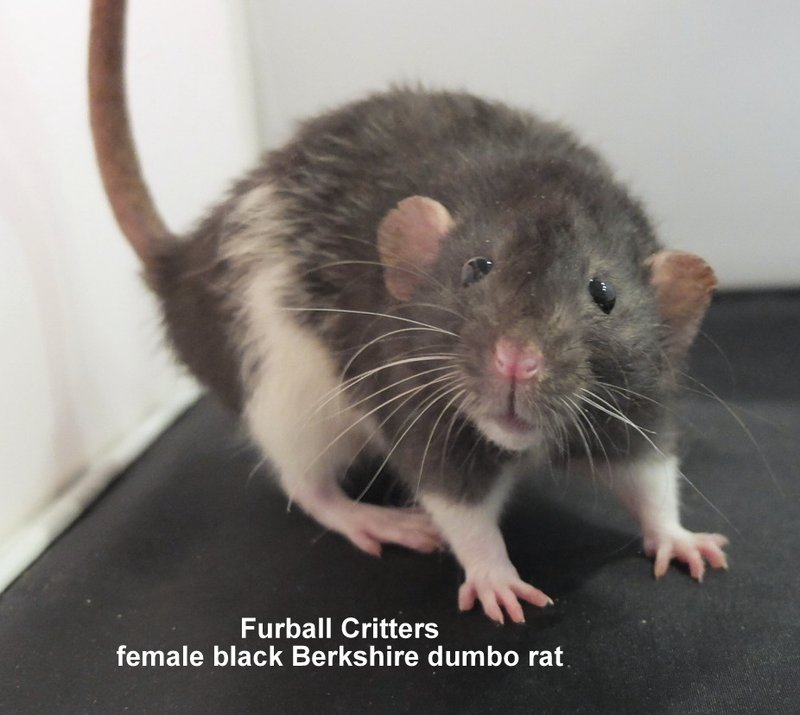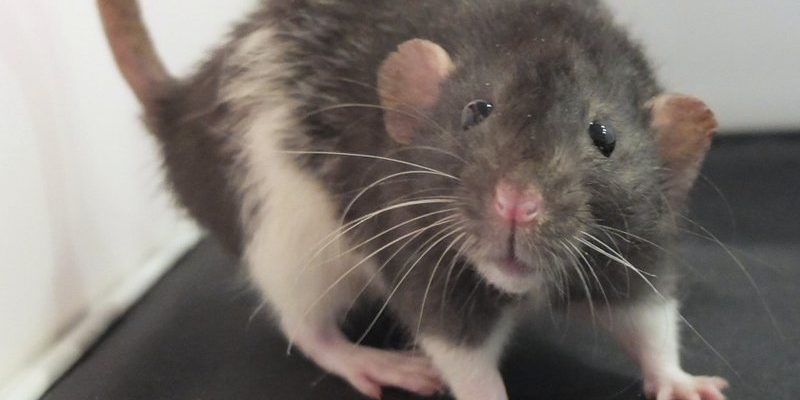
Berkshire rats are adorable, social, and surprisingly intelligent. They thrive on human interaction and can make wonderful companions. But it’s not all sunshine and rainbows. Just like any pet, they come with their own set of needs and challenges. So, how do you decide if this charming little creature is for you? Let’s explore their characteristics, benefits, and potential downsides.
Understanding the Berkshire Rat
Berkshire rats are a specific *color variety* of domestic rat, known for their sleek bodies and unique markings. They typically have a white base coat with dark patches, resembling a tuxedo. Not only do they look cute, but their friendly personalities make them popular pets. It’s important to note that they are not wild rats; they have been bred over generations for temperament and size. This generally means they are more sociable and easier to handle.
When you think about Berkshire rats, picture little furballs zipping around their cage, curious and eager to interact. They are incredibly intelligent. It’s fascinating how they can recognize their owners and even learn tricks! You might find yourself teaching them to roll over or fetch a small toy. This level of interactivity sets them apart from many other small pets. However, owning one means committing to their emotional and physical needs.
Pros of Owning a Berkshire Rat
- Social Creatures: Berkshire rats are known for their friendly nature. They thrive on companionship, whether it’s from their human owners or other rats. Many owners report that their rats develop strong bonds with them, often seeking out attention and interaction.
- Low Maintenance: Compared to dogs or cats, rats require relatively low maintenance. They can stay clean on their own but need regular cage cleaning and care. Their food and water needs are straightforward, making them easier to manage for busy owners.
- Intelligent and Trainable: Berkshire rats are quite smart. You can teach them tricks, and they enjoy problem-solving tasks. This intelligence can lead to a fulfilling relationship, as they are eager to learn and engage with their environment.
- Space Requirements: They don’t require a lot of space. A reasonably sized cage will suffice, and they can be taken out for playtime in a safe, supervised area. This makes them a good choice for those who live in smaller homes or apartments.
These pros make Berkshire rats appealing to a lot of potential pet owners. If you’re looking for a pet that interacts well and doesn’t take up too much space, they can be a fantastic choice.
Cons of Owning a Berkshire Rat
Before making a decision, it’s also important to consider some of the downsides of having a Berkshire rat as a pet.
- Short Lifespan: One of the hardest realities of owning a rat is their short lifespan. On average, Berkshire rats live around 2 to 3 years. This can be emotionally challenging for owners who grow attached to their little companions.
- Health Issues: Like all breeds, Berkshire rats can be prone to certain health problems, such as respiratory issues or tumors. Regular vet visits can be vital, and you should be prepared for potential medical expenses down the road.
- Social Needs: While they love social interaction, this also means they can become lonely if left alone for too long. It’s often recommended to keep them in pairs or groups to keep them happy. This can mean additional costs and space requirements.
- Habitat Maintenance: Though they are low maintenance in some ways, their cage does require regular cleaning. Rats can be messy, and you’ll need to dedicate some time to keep their living area clean and hygienic.
These cons might give you pause. It’s crucial to weigh these factors with the pros before deciding.
How to Care for a Berkshire Rat
If you decide that a Berkshire rat is the right pet for you, understanding how to care for them is key to a happy, healthy relationship.
First, setting up their cage is essential. Rats need a spacious environment with multiple levels to climb and explore. You can find specially designed rat cages that offer a lot of room. Make sure to include platforms, hammocks, and tubes for them to play in. Using safe bedding, like aspen shavings or paper-based products, will help keep their space comfortable and clean.
Second, provide a balanced diet. You can feed Berkshire rats a mix of high-quality commercial rat food and fresh fruits or veggies. Just avoid items like chocolate, caffeine, or very citrusy fruits, as these can be harmful. Remember to always provide fresh water daily, either in a bottle or a bowl.
Lastly, spend time with your rat every day. Setting aside even just 15 to 20 minutes can make a big difference. You can engage them with toys, allow them to explore outside their cage, or even teach them tricks. Positive reinforcement with treats can help them feel secure and build trust.
Are Berkshire Rats Good for Kids?
You might be wondering if Berkshire rats are suitable for children. Generally, they can be a fantastic choice! Their friendly demeanor and social nature make them great companions for kids. However, there are a few things to keep in mind.
First, while they are generally docile, younger children may not understand how to handle them gently. It’s essential to have parental supervision when kids are interacting with the rats to avoid any accidental drops or rough handling. Teaching kids how to approach and care for their pet can be a rewarding experience, fostering empathy and responsibility.
Second, consider the child’s age and maturity level. Kids who are old enough to understand the responsibility of pet care will benefit from having a rat. They can help with tasks like feeding and cage cleaning, turning it into a fun family activity.
Ultimately, Berkshire rats can provide wonderful, educational experiences for children, teaching them about companionship and care.
Alternatives to Berkshire Rats
If you’re on the fence about getting a Berkshire rat, you might want to explore some alternatives.
- Other Rat Breeds: There are several other rat breeds that might suit your preferences. Dumbo rats, for example, are also friendly and come in a variety of colors. They have larger ears and a gentle disposition, making them popular pets too.
- Guinea Pigs: If you’re looking for a slightly larger pet, guinea pigs are social and good-natured. They can be a bit more challenging to care for compared to rats, but they also have longer lifespans, typically living around 5-7 years.
- Hamsters: If space is a concern, hamsters could work. They require less interaction than rats but can still be entertaining and engaging as pets. Just be aware that they have fairly solitary lives, unlike the social nature of rats.
Each of these pets has different needs and characteristics. It’s important to think about what environment and lifestyle you have before making a decision.
Deciding whether a Berkshire rat is right for you involves weighing the joys and challenges of pet ownership. These little creatures can bring warmth and companionship into your life, but they also require commitment and care.
Remember, owning a rat is not just about having a pet; it’s about forming a bond that can last for a couple of cherished years. If you’re ready to embrace the unique experience of bonding with a Berkshire rat, you may find a delightful friend. But if you’re not sure about the responsibilities involved, it might be worth considering other pets that better fit your lifestyle.
So, take your time, do your research, and choose what feels right for you. Your future furry friend will thank you for it!

